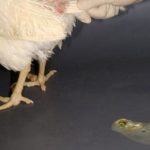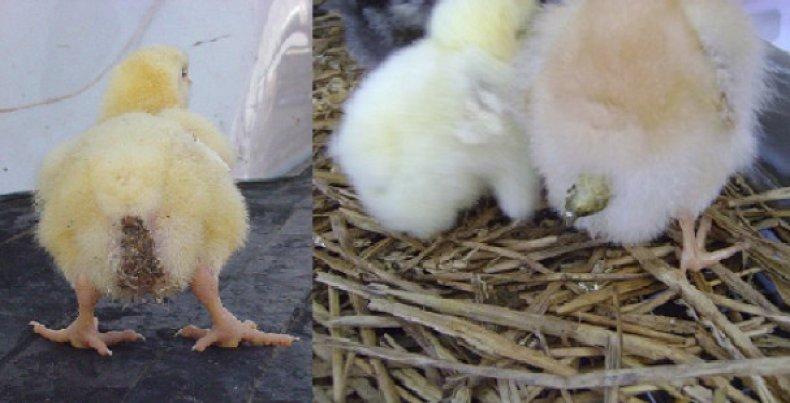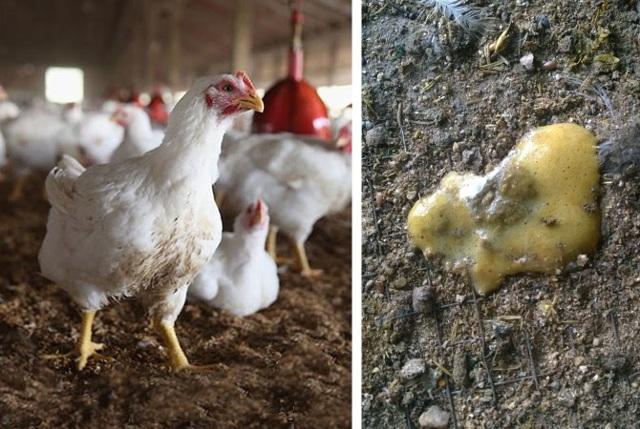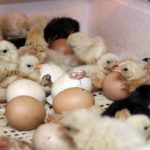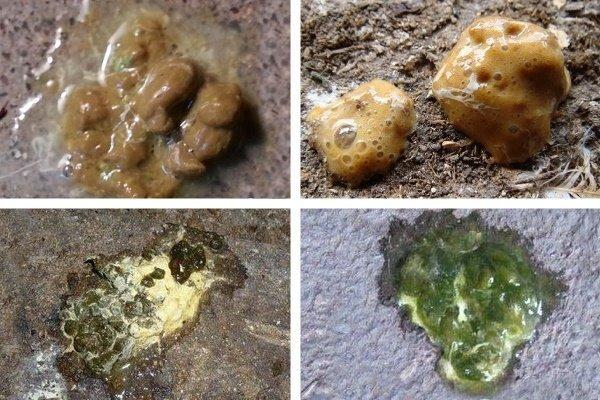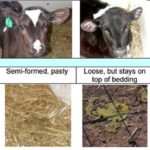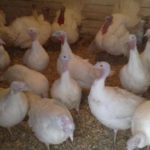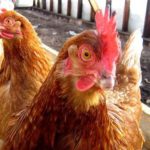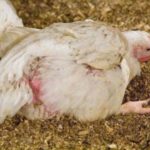As poultry farmers know, chickens are not in good health, and until they grow up, they can suffer from infectious diseases. Diarrhea is often a symptom of infection. Let's look at the types and characteristics of diarrhea in chickens, the causes and symptoms of its occurrence, and what complications there may be. How to treat diseases and how to prevent their occurrence among domestic chickens.
Types of diarrhea in broilers and their characteristics
Often the cause of diarrhea in chickens is infection with pathogens of infectious diseases. You can roughly determine which one it is by the color of the discharge and other signs. Diarrhea caused by infections is more common in chicks from birth to 1-3 months. The disease can be acute or subacute, but, in any case, it spreads quickly and can affect the entire population.
Salmonellosis
Infection with salmonella occurs from sick or recovered chickens, since even recovered individuals remain carriers of the bacillus throughout their lives. Chickens become infected through water and feed. The intestines and lungs are affected. Signs: Chicks are standing with their mouths open and eyes closed. The diarrhea is whitish, foamy, the cloaca is contaminated.
Helminthiasis
Yellow diarrhea in chickens is a sign of the presence of nematode roundworms in the intestines. Infection can occur at any time; often chicks become infected while on a walk where sick birds had previously been. With helminthiasis, chickens lose a lot of nutrients, lose weight, move little, sit more, and their combs turn pale.
Pullorous lesion
Signs of pullorosis: white or green diarrhea with mucus, soiled cloaca. The chickens are depressed, lower their wings, close their eyes, squeak, spread their legs, breathe with difficulty, and feel thirsty.
Pasteurellosis
Diarrhea with white-green discharge, often foamy, indicates pasteurellosis. Other signs: runny nose, difficulty breathing, wheezing. The disease cannot be treated, and sick chicks die.
Coccidiosis
Brown or brown-red stool with mucus appear in chickens due to coccidiosis. Transmission of the pathogen occurs through water, equipment, and dirty, damp litter. Birds become infected when kept in crowded conditions or with a large number of birds.Signs of infection: decreased appetite and thirst, exhaustion, unkempt appearance, drooping wings, depression, pale scallops.
Gastritis and other types
Digestive problems manifest as clear discharge. The chicken does not eat, but drinks a lot of water. The causes of diarrhea in this case are poor nutrition, poor quality food, lack of vitamins, overeating, sudden changes in foods, poisoning.
The main reasons for the appearance
Infections appear and spread among chickens if they are kept crowded in a small room. Infections accumulate in bedding, uneaten food in the feeder, and stale water. Chicks can become infected simply by contacting sick individuals. The likelihood of infection is increased by weakened immunity due to being kept in a cold, damp, dirty room with drafts. Stress from crowding and fighting also reduces the bird's immunity.
Symptoms of the problem
With diarrhea, the main symptom is loose stool. Diarrhea causes excessive loss of water and mineral salts, which greatly depresses the bird’s body. The chickens quickly weaken, sit a lot, and move little. Appetite decreases and water consumption increases. The color of stool changes.
What complications can there be?
Due to the loss of water and mineral elements, a sharp disruption of physiological processes occurs. For a bird’s body, especially a young one, this is a lot of stress. Chickens quickly lose weight, become weak and, if no help is given to them, die. Those who are lucky enough to recover will be stunted for some time and gain weight poorly.
Methods for treating diarrhea in chickens
Treatment consists of antibiotics and plenty of water. Drugs are chosen depending on the pathogens that cause the disease. Helminthiasis is treated with anthelmintic drugs. All sick birds are separated from healthy ones for the duration of treatment. The brooder is cleaned and disinfected.
After completing a course of antibiotic therapy, chickens are given probiotics, which normalize the content of beneficial microflora in the intestines. Additionally, vitamin and mineral complexes are given to restore the content of vitamins and minerals.
If you have gastritis, you need to adjust your diet and remove foods that cause inflammation. If you overfeed the chickens, you won’t have to treat them; all you need to do is leave the chicks on a diet for a day and give chamomile infusion, oatmeal or rice water as a mild fixative.
Prevention
To prevent chickens from blaming, you need to keep the brooder clean, often change the bedding, water in the drinker, and remove any leftover food from the feeder. Keep birds in numbers that do not exceed the area norm. The room should be warm, dry and light, drafts should not be allowed. Be sure to disinfect at least once a month.
It is important to vaccinate or feed birds with drugs that develop immunity against common infections. Feed the birds only high-quality and fresh food. Do not keep with adult birds. When purchasing new birds, keep them in quarantine for at least 2 weeks. The recovered and recovered birds should be fed for meat and not used for breeding.
Diarrhea in chickens is a sure sign of indigestion or a symptom of an infectious disease. In any case, you need to start fixing the problem immediately.Infections spread quickly among poultry and can destroy part or all of the flock in just a few days.

